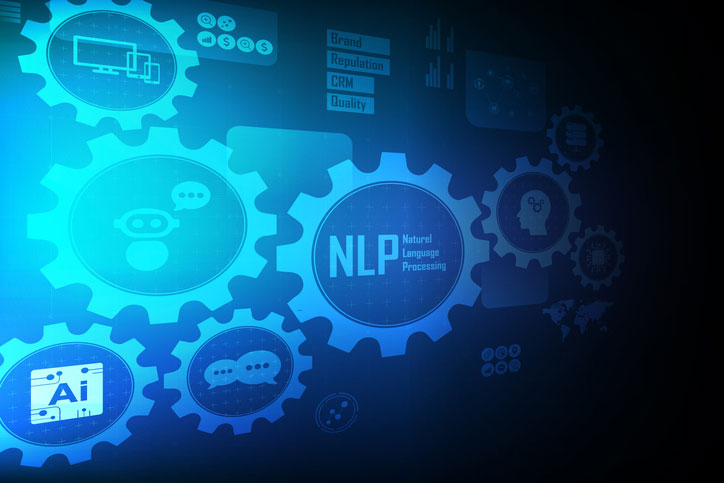Written by Scott Wilson

Machine learning certificate programs started to heat up at the same time the field of data science was turning into a go-to solution for business and government. As a powerful technique for assessing, interpreting, and inferring meaning from large piles of unlike data, ML grew up as a field even before artificial intelligence started on its current resurgence.
ML and AI have common roots and an important relationship: machine learning is a technique that has grown out of artificial intelligence studies and powers most of the modern tools we think of as AI. But it’s also a tool that has found uses in other fields entirely, like the booming world of data science.
Both data science and AI exploded out of the worlds of math, statistics, and computer science.
These fields become so important so fast that the availability of degree programs to train people hasn’t kept up with the need. But thousands of graduates from related degree programs are only a few classes away from having those powerful skills.





Certificates in machine learning bridge that gap. By building on the existing layers of expertise that you may have developed through other studies and professional experience, you can get a quick course of study in one of the premier technologies of the AI revolution.
What Is a Machine Learning Certificate?
A certificate in ML is a relatively quick, inexpensive collection of college-level coursework that teaches students with related degrees how to use this powerful AI technique in a variety of industries.
No, an ML certificate is not a piece of paper they hand to a robot after it learns a new function.
Usually lasting less than a year, only a handful of classes are involved. That creates the second great advantage of certificates, which is that they carry a low cost compared to the full university degrees usually required in this field.
But not just anyone can step in and get through an ML certificate program. It’s a complex field that relies on an in-depth understanding of underlying topics and skills such as:
- High-level mathematics
- Statistical concepts and techniques
- Programming ability
- Data management and parsing
Just to get in the door at the typical ML certificate program, you will need either a bachelor’s or master’s behind you that paved the way with that kind of curriculum.
In return, you can quickly stack on training in machine learning, a discipline that is key not only in AI, but also in other professional fields like data science and cybersecurity.
Get Clear on the Differences Between Academic Certificates vs Professional Certifications in Machine Learning
 When searching for post-bachelor’s or post-master’s ML certificates, you’ll turn up a lot of apparently similar programs for ML certifications.
When searching for post-bachelor’s or post-master’s ML certificates, you’ll turn up a lot of apparently similar programs for ML certifications.
What’s the difference?
Briefly, professional certifications are a kind of endorsement of your demonstrated skills in the areas they cover. Often, that’s a very specific subset of machine learning, like a specific technique, or tools offered by a particular software company. In many cases, the certification is developed by that same company, or through a private organization, even in instances where the classes are delivered through a traditional university. Professional certification has its place when building machine learning skills and marketable credentials. Find out more about those kinds of options in our dedicated ML certification guide.
But a graduate (post-bachelor’s) or post-graduate (post-master’s) educational certificate program, which is what we’re talking about here in this guide, is a university-based academic course designed to offer broader skills in machine learning through a traditional university curriculum. In fact, they often consist of a subset of the very same classes as a degree in ML, even taught by the same instructors. You may receive actual credits that can be applied toward a full degree in the future – an important consideration in a field where PhDs aren’t exactly uncommon among the brilliant minds developing and advancing machine learning capabilities.
Educational certificates are designed to create deeper layers of learning and knowledge. They are taught with less focus on specific technologies or techniques than a professional certification course.
A machine learning certificate is how you cultivate your ML knowledge; an ML certification is how you demonstrate and refine it.
While professional certifications are in some cases offered in coordination with universities, they remain a very different kind of program from graduate and post-graduate certificates in machine learning. Make sure you are pursuing the option that makes the most sense for your professional needs.
Finding the Right Type of Machine Learning Certificate for Your Current Role and Eventual Goals
Machine learning certificates tend to fall into three general categories.
Category 1 - The first type is focused entirely on the core math and statistical underpinnings of machine learning.
They may have titles like a Graduate Certificate Program in Statistics and Machine Learning or a Graduate Certificate in Applied Machine Learning. The skills you take away from these programs serve as a foundation for using ML in almost any industry or field, or in pure research and development.
Category 2 – The second category is for ML cert programs focused on ML applications.
They have titles like Graduate Certificate in Data Mining and Machine Learning, Machine Learning Certificate for Engineering Professionals, or Certificate in Data Science and Machine Learning.
Category 3 - Finally, a new brand of ML certificate program is emerging that ties ML into artificial intelligence directly.
These may be called Certificate in Machine Learning and Artificial Intelligence, an Advanced Certificate Program in Machine Learning and Deep Learning, or something more specific like a Certificate in Natural Language Technology.

Any of these can unlock a wide range of careers in machine learning that include, but expand on, the opportunities in artificial intelligence engineering in general. The choice that makes the most sense for you will depend on:
- Your educational background: Certifications are taught at different course levels; graduate certificates at the master’s level, postgraduate certs at the doctoral level. So you’ll need to find options that fit in with your current level of educational attainment.
- Your work experience: With various audiences, most certificate programs are built on an expectation that students have a certain type of functional experience in technical or professional roles. To take full advantage of what the program offers, you’ll want it to build on the experience you have.
- Your career goals: In the same way, a certificate will only make sense if it works to build your skills toward your larger goals. Although ML is a field with many applications, certificates are highly focused. You want knowledge that will give you a ladder to climb toward your next professional objective.
What You Need to Qualify for a Machine Learning Certificate Program
As with any kind of advanced field, not just anyone can get into machine learning certificate programs. Schools evaluate applicants based on educational qualifications and the skillsets necessary to get the most out of the material. You can expect to have to confirm your:
- Latest level of educational attainment by providing college transcripts
- Elementary mathematical and statistical skills, either through a test or showing relevant coursework at the required levels
- Programming skills, either through demonstration or prior courses
There is no room for remedial training in machine learning certificate programs, so you had better show up fully prepared with the right qualifications.
Beyond those absolute requirements, many certificate programs recommend that you have additional preparation in the form of:
- Technical work experience in related fields
- Programming skills and experience with particular languages and tools
- Deeper levels of practical experience with math and statistics
Machine Learning Certificates Have a Tightly Focused Course Load
 Since ML certificate programs only have a handful of classes, each course must be tailored to fit with the program’s overall goals. You won’t find a lot of branches or supporting background information along the way.
Since ML certificate programs only have a handful of classes, each course must be tailored to fit with the program’s overall goals. You won’t find a lot of branches or supporting background information along the way.
Instead, ML certificates tend to dive right into the core components of the field, with classes like:
- Fundamentals of Machine Learning - These classes introduce the conceptual bases of machine learning and the elementary methods of applying ML techniques to various subjects.
- Machine Learning Tools and Techniques - In these classes you’ll dive into the gritty details of developing actual ML algorithms, optimizing them, and selecting the right ML tools for specific functions. They may cover subjects like:
- Model Selection and Optimization
- Linear and Multiple Regression
- Clustering and Principal Component Analysis
- Decision Trees
- Classification and k-Nearest Neighbors
- Advanced ML Subjects and Applications - Finally, you’ll usually have a class or set of classes that takes your previous studies and applies them to the specific area of focus of the certificate. That can range from areas like Natural Language Processing to Recommendation Systems to Computer Vision and self-driving vehicles. These are the courses that will get to the meat of the certificate and give you the final edge you are looking for.
Of course, in all cases, the exact details will be slanted toward the purpose of the certificate. You’ll have more AI-centric techniques in AI and ML certificates, and courses specific to engineering uses in ML certificates for engineers.
In some cases, certificate programs have a very limited level of flexibility to select elective courses to further tailor your studies. You may only have one or two slots in your program to fill. But you often have a wide range of choices to fill them with, depending on the overall catalog of the university.
The more specific the focus of the certificate, the narrower the subjects you are likely to be studying. For example, an ML certificate aimed at building deep learning skills will revolve around coursework in algorithm design and optimization, never verging into decision trees or data science applications.
Finding the Right School for Your Machine Learning Certificate Studies
 Choosing the right school for your machine learning certificate studies will track closely with how you picked out the right college for your previous degrees. In fact, depending on how closely related your current degree is to machine learning, you might even be looking at returning to your alma mater—a university with strengths in math, statistics, or computer science can be a prime choice for solid ML certificates.
Choosing the right school for your machine learning certificate studies will track closely with how you picked out the right college for your previous degrees. In fact, depending on how closely related your current degree is to machine learning, you might even be looking at returning to your alma mater—a university with strengths in math, statistics, or computer science can be a prime choice for solid ML certificates.
In any case, you want to make sure your selection checks the usual boxes:
- Classes taught by high-quality instructors with strong professional and academic credentials, often including significant journal publications in the field
- Departments that offer sufficient lab, mentorship, and computational resources to perform the intensive studies required in machine learning
- Good academic advising and career counseling services to make sure you get the most from your education in preparation for your job hunt
- Specializations and industry connections that align with your educational needs and career goals
That last item may be the most important…
Machine learning is a field that is very much unfolding by the day. Finding a school that partners with companies that are developing and using ML in ways that fascinate you is key to ensuring your studies align with your professional goals. This means learning ML in an environment that puts it in the right professional context. This also means having a shot at making connections with people that are in the right place to help move your career in the direction you want it to go.
Why Online Machine Learning Certificates are the Best Option for Many Students Today
 Online studies are a natural fit for most high-tech fields, and ML is no exception. Much of your work is going to happen solo, in front of a computer screen. So when it comes to the vital process of listening to lectures, interacting with fellow students, or exploring new ideas and techniques, it’s a huge benefit if it happens through that same screen.
Online studies are a natural fit for most high-tech fields, and ML is no exception. Much of your work is going to happen solo, in front of a computer screen. So when it comes to the vital process of listening to lectures, interacting with fellow students, or exploring new ideas and techniques, it’s a huge benefit if it happens through that same screen.
With streaming video lectures, real-time chatroom interaction, and innovative online teaching tech, online programs give you a first-rate educational experience every bit as engaging and rigorous as what you’d find on campus.
And because you can choose to tune in and engage any time, day or night, you have the flexibility to keep your current work and family obligations front and center. You don’t have to go through the expense and disruption of relocating. And you don’t have to rule out programs on the other side of the country that might otherwise be out of reach.
The career value of developing skills in machine learning will only go up as all the fields that use the technology progress. In a way, it’s the optimal avenue into AI for anyone who wants to keep their options open—or the perfect way to further your current career while opening doors to a future in artificial intelligence. With nothing but more and more demand on the horizon, a certificate in ML is an affordable way to future-proof your job prospects.





